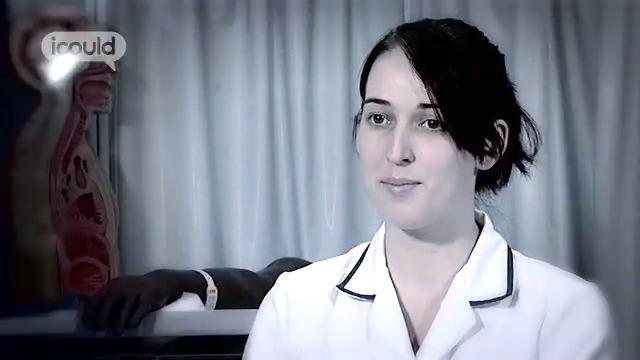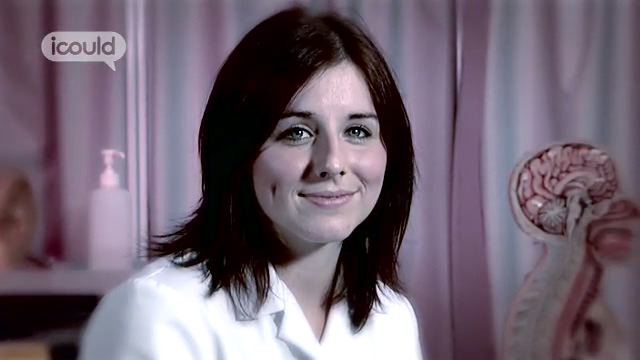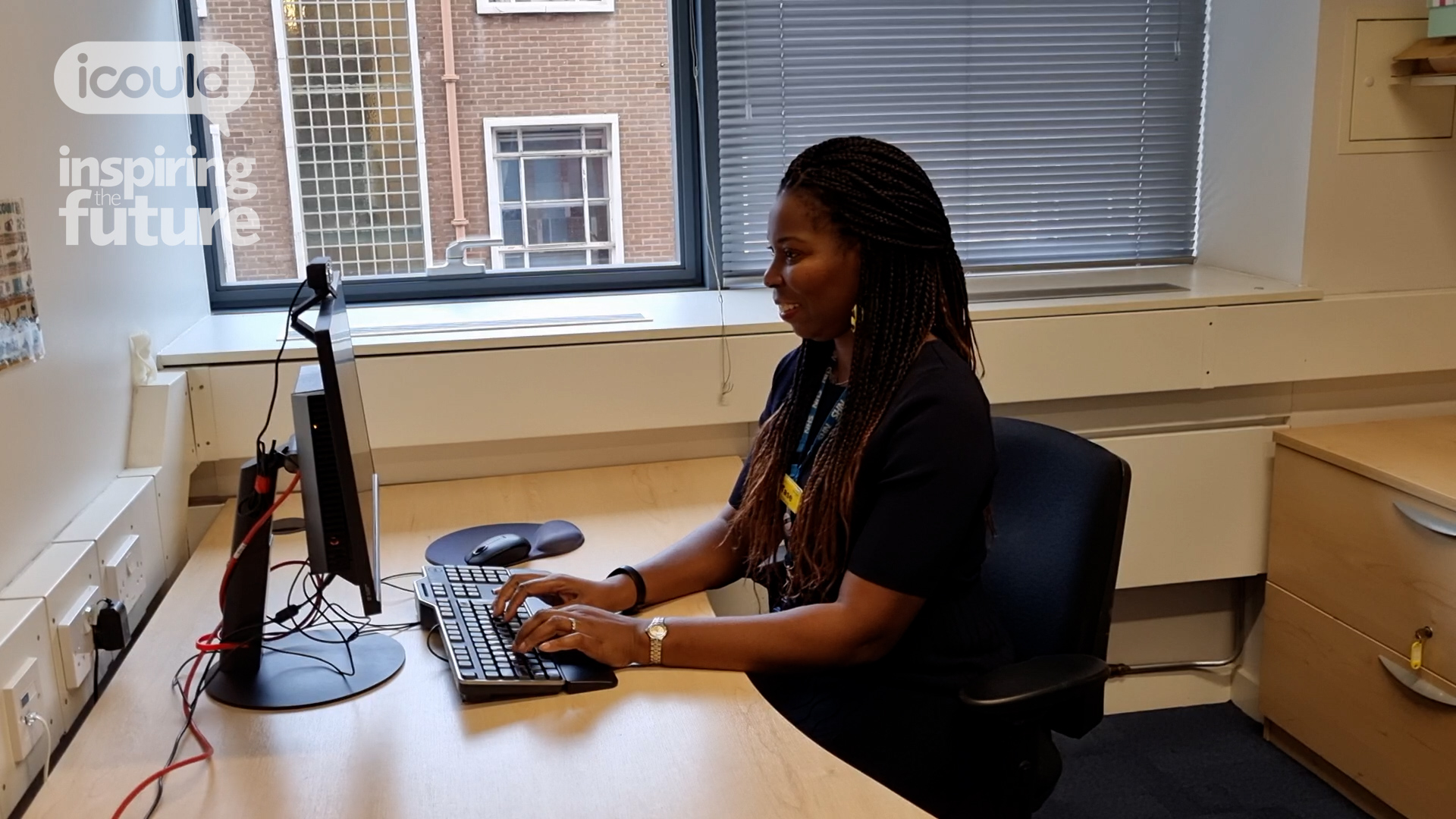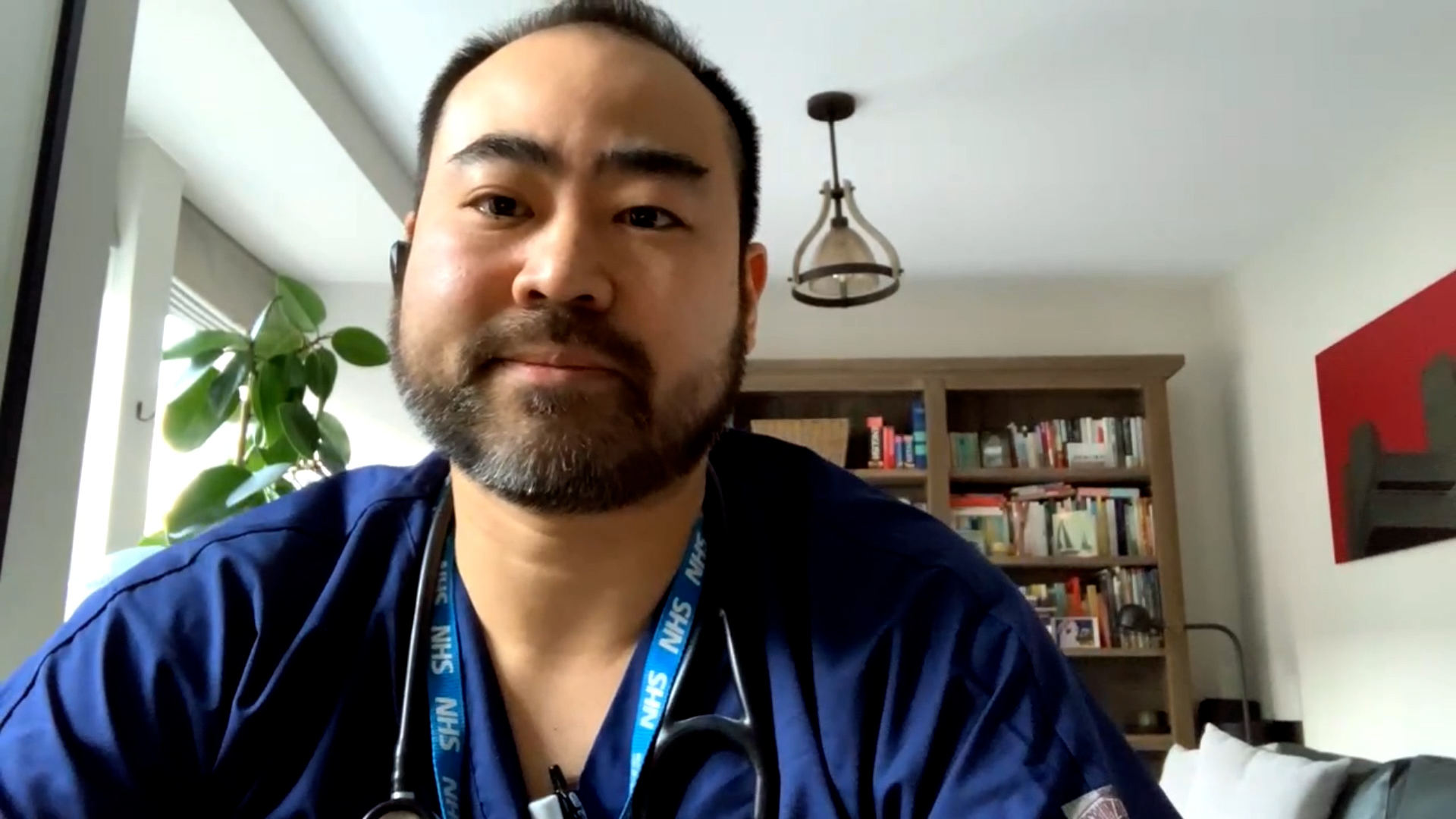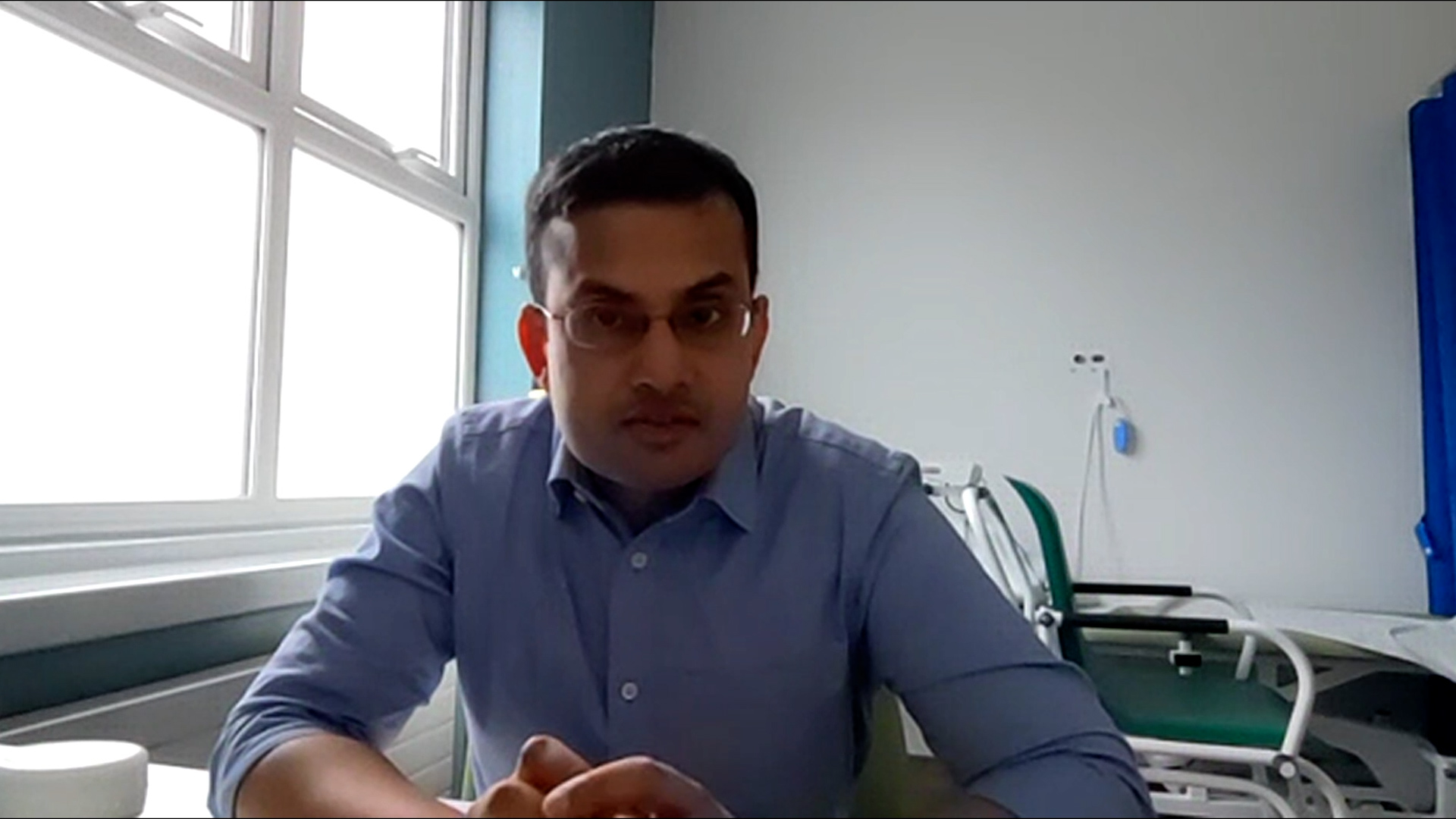Occupational Therapist
Addenbrookes Hospital
Sara M
00:00:02 My name’s Sara M and my job title is an Occupational Therapist. I work in an acute hospital, which means on a day to day basis we’re assessing people’s needs, and helping them to be more independent at home. This is just something I brought along. It’s called a bath board. So this will sit over someone’s bath, maybe an older person usually, and what happens is that the person can then use this to transfer their legs into the bath while they’re sitting down on the actual bath.
00:00:31 I actually think OT’s a great job and I really enjoy it. I really like finding out about people, and being able to talk to people in my job. You really do get a chance to speak with people, and really try and problem solve for them. And then it’s really nice to see that something really simple, or you taking a different approach from other health professionals, can really make a difference to that person.
00:00:57 My Mum is a Psychiatric Nurse, and she was actually studying Cognitive Behavioural Therapy, and I actually found it very interesting what she was studying. And looking into the different ways you can become a Cognitive Behavioural Therapist I found out that one of them was through being an Occupational Therapist. So that’s how I originally heard of it and started looking into it from there. While they didn’t talk about it much, you’re still influenced slightly I think by what your parents are doing, so it’s quite funny that I’ve gone into the public sector in that same way.
00:01:28 I didn’t really have an interest in any particular area. I enjoyed things like Maths, shockingly, Psychology. When it came to picking my degree course, it was quite hard to pick something when you don’t know what you want to do in the future and where your strengths lie, so it was about finding a course that I would find both enjoyable and be beneficial to me when I started work.
00:01:54 I also had a gap year between college and university. I did some volunteer work with an orphanage in Malaysia, so I was working with children, over a hundred children in one orphanage, for three months. The experience was a really, really enjoyable one. I found it very difficult afterwards to comprehend what those children’s lives must have been like, because you only see a snapshot glimpse of how they’re managing, and you don’t really get to see the consequences of the lack of full parental guidance until a bit older.
00:02:31 You have to be able to turn off at the end of the day. I think if you didn’t you would allow their illnesses or their disabilities to really affect you. Because you end up do talking to people and you do find out about them, you do build up a rapport with people, and it’s very important at the end of the day to switch off from that.
00:02:51 I feel motivated at work by helping other people. I really think that OT can make a difference to people’s lives, and knowing that you’re helping someone can be really, really rewarding. So that does motivate me each day.
00:03:05 Probably in the future I would consider doing a Masters, but because I’ve already done Occupational Therapy as a degree, I can do my Masters maybe in an area of Occupational Therapy that interests me. I think for myself personally I find mental health very very interesting, so would probably consider going back into that, but I think there’s a lot of skills and expertise to be learned in physical health first. Despite not being paid greatly, I think for me, for in the future, I could continue working in a job that I find enjoyable and rewarding.
00:03:40 ENDS
Occupational therapist Sara M says “I really think that Occupational Therapy can make a difference to people’s lives, and knowing that you’re helping someone can be really, really rewarding”. She also describes the impact of her gap year, spent at an orphanage in Malaysia.
More information about Occupational therapists
The UK average salary is £29,813
There are 37.5 hours in the average working week
The UK workforce is 47% female and 53% male
Future employment
- Considers the physical, psychological and social needs of a patient that may result from illness, injury, congenital condition or lifestyle problems;
- Devises, designs, initiates and monitors carefully selected and graded treatments and activities as part of the assessment and intervention process;
- Liaises with a wide variety of other professionals in planning and reviewing ongoing treatments;
- Trains students and supervises the work of occupational therapy assistants;
- Makes home visits to clients, families and carers to organise support and rehabilitation and assist them to deal and cope with disability;
- Counsels clients in ways to promote a healthy lifestyle, prevention of illness and/or preparation for coping with increasing stages of illness;
- Maintains patient records, manages caseloads.
